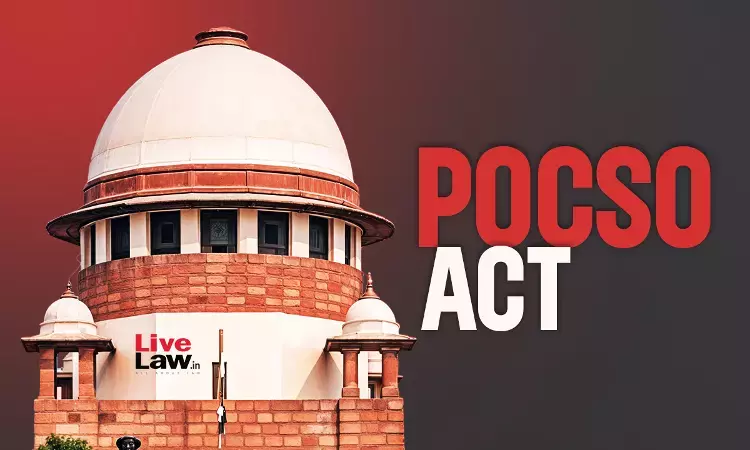- Home
- /
- Top Stories
- /
- Supreme Court Stays Rajasthan HC...
Supreme Court Stays Rajasthan HC Judgment Which Held POCSO Act Safeguards Won't Apply Once Victim Turns 18 During Trial
Amisha Shrivastava
27 Sept 2025 7:31 PM IST
The Supreme Court on Friday stayed a Rajasthan High Court judgment which held that procedural safeguards under the Protection of Children from Sexual Offences Act, 2012 (POCSO Act) end once the victim turns 18 during the trial. A bench of Justice Pankaj Mithal and Justice Prasanna B Varale issued notice returnable in six weeks on a petition challenging the High Court's order dated May...
The Supreme Court on Friday stayed a Rajasthan High Court judgment which held that procedural safeguards under the Protection of Children from Sexual Offences Act, 2012 (POCSO Act) end once the victim turns 18 during the trial.
A bench of Justice Pankaj Mithal and Justice Prasanna B Varale issued notice returnable in six weeks on a petition challenging the High Court's order dated May 27, 2025.
The issue before the Supreme Court is whether procedural safeguards under Section 33(2) of the POCSO Act should continue to apply to a victim who has turned 18 during the pendency of the trial.
“One of the issues arising in this petition is whether the child victim under the Protection of Children from Sexual Offences Act, 2012 (POCSO Act), who has turned major during the pendency of the proceedings would continue to have the benefit of sub section 2 of Section 33 of the POCSO Act. Issue notice, returnable in six weeks. In the meantime, the effect and operation of the impugned order dated 27.05.2025 passed by the High Court, shall remain stayed”, the Court stated.
Section 33(2) requires that questions during the examination-in-chief, cross-examination or re-examination of a child be routed through a special court.
In the order under challenge, the Rajasthan High Court ruled that these safeguards are contingent on the age of the victim and apply only to those who fit the statutory definition of “child”.
The High Court held that once a victim reaches the age of majority, these protections cease to be mandatory. It said the word used in these provisions was “child” and not “victim”, which reflected the legislature's intention to confine the safeguards to children.
The High Court referred to the Supreme Court decision in Ms. Eera through Dr. Manjula Krippendorf v. State to hold that “child” must be interpreted strictly in its biological sense, not on the basis of mental or intellectual age.
It ruled that continuing procedural protections after the victim attains majority would amount to judicial legislation and risk undermining the accused's right to fair trial under Articles 14 and 21 of the Constitution.
The High Court further stated that any extension of these safeguards beyond 18 years must be done only after recording reasons and conducting a prior competency assessment under Section 118 of the Indian Evidence Act.
It carved out an exception by allowing courts to extend these protections in specific cases where it is necessary for justice and the psychological welfare of the witness, provided it does not prejudice the accused.
Advocates Adwaita Sharma, Kartika Sharma and Udian Sharma (AoR) represent the petitioner.
Case No. – Special Leave Petition (Criminal) Diary No. 51513/2025
Case Title – XXX v. State of Rajasthan & Anr.



